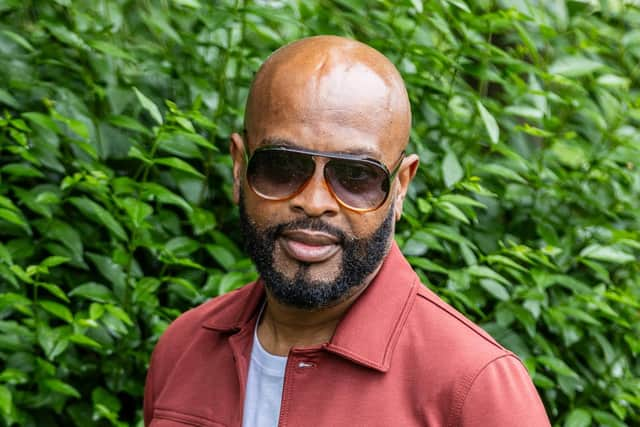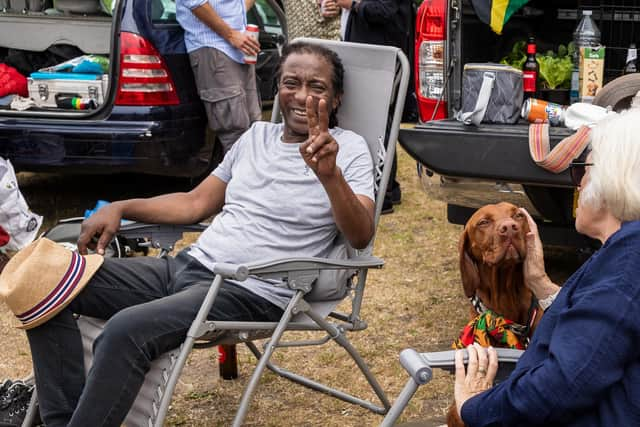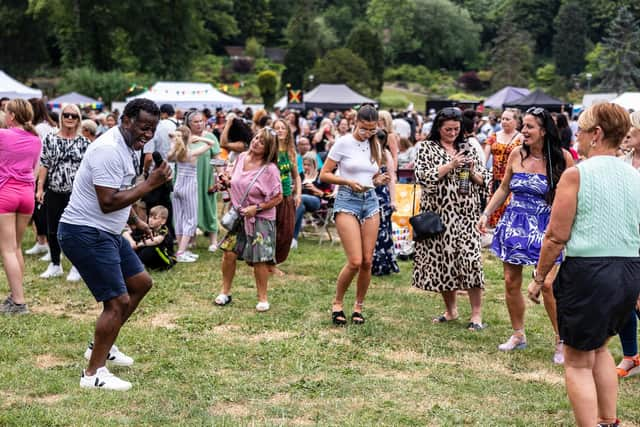Windrush 75: why Preston’s younger generations give a veteran community worker hope for a future free from discrimination
and live on Freeview channel 276
However, he is far from convinced that the 75th anniversary of the arrival in the UK of its first members would have been commemorated to the extent that it has been this week had it not been for the scandalous way in which many of them were treated after a lifetime of living here.
Adrian’s mother and father were amongst those who answered the call from the British government for residents from the Caribbean and other Commonwealth countries to leave their homes and come to help plug labour shortages and get the nation back on its feet after World War Two.
Advertisement
Hide AdAdvertisement
Hide AdIn 2018, it emerged that many of their number had later been wrongly deported – or threatened with that fate – in spite of having the right to remain in the UK.


Adrian believes it was only the uproar caused by that injustice that led to the creation of an annual “Windrush Day” and the myriad of events to mark this year’s milestone jubilee of when the HMT Empire Windrush docked at Tilbury in Essex and the first 492 passengers from the ship that would give its name to a generation took their first steps on British soil.
A decade ago, when he co-founded Windrush Initiatives CIC in Preston – to recognise the role played by people like his parents in the story of late twentieth century Britain – Adrian recalls very little by way of national interest in Windrush history beyond the original community and its descendants.
“It wasn’t talked about…[and so] I’m proud of Preston – we did it for all the right reasons. When the scandal became known – and money was available [for projects] – that’s when everybody started to come out,” he told the Lancashire Post.
Advertisement
Hide AdAdvertisement
Hide Ad“Whereas in 2013, we just wanted to acknowledge our parents, really – and we didn’t understand why nobody was.


“[We also] thought it was important for young children to understand the contribution of their grandparents and why they were here in the first place – because they got invited over to Britain to rebuild the country after the Second World War.
“And don’t forget it’s the 75th anniversary of the NHS as well – and many of the [Windrush generation] who came here joined the NHS.”
Once the scandal broke, the organisation Adrian helped to establish was well-placed to pick up the pieces left by the fear it caused in Preston.
Advertisement
Hide AdAdvertisement
Hide Ad“What we said to the community [at first] was that we didn’t know what was going on – because we didn’t understand it and there was no point pretending we did.


“But we had a meeting so that everyone could come together to discuss how they felt – and some of them were scared, because they didn’t have their papers [proving their British citizenship].
“[The national story] was heartbreaking. People were being told to go home – but go home to what? They’d been here since the ‘50s – this is their home, they had made a life here.
“How could [the government] actually treat a group of people [like that] who had given the best years of their life to this country – more than they had given to their own islands?
Advertisement
Hide AdAdvertisement
Hide Ad“They saw slogans on the walls [when they first arrived] – “No Irish, no Blacks, no dogs” and “Keep Britain White”. And then when they’d given the best years of their lives, [the government] did exactly the same thing as those slogans did all of those years ago when they got here.”


The wrongful deportations flowed from the Home Office’s so-called “hostile environment”, a set of policies designed to target illegal immigration, but which caught innocent others in its net.
Adrian’s own parents arrived in the UK separately in the late 1950s and early 1960s – his father, Dennis, from Barbados and mother Maria from Montserrat.
Growing up in Preston – and then as a young adult – Adrian experienced the kind of racism that he readily acknowledges is, thankfully, not as prevalent as it once was.
Advertisement
Hide AdAdvertisement
Hide Ad“Of course things have changed,” he says. But he also warns that “the battle” is far from over – and worries that the Windrush scandal itself was evidence that some improvements in how the Black community is treated have been little more than superficial.
“You only have to look at football and the stuff [you see] online when somebody misses a penalty. Even my daughter, if she goes into a shop, she gets looked at and followed – and people do still get racially abused.”
However, two projects with which Adrian is personally involved give him good cause to be optimistic that things will continue to get better for future generations – at least here in Preston.


First, an initiative called The Black Experience, which visits primary and secondary schools and colleges.
Advertisement
Hide AdAdvertisement
Hide Ad“[Some] schools I’ve been to have had a couple of racial incidents – but the majority of [the visits] have given me hope.
“In every single classroom – from Frenchwood to Broughton, Barton to Ingol – [the pupils] don’t understand why you’d be treating somebody differently just because of their colour,” observed Adrian, who has worked with and supported the Black community in Preston for 40 of his 59 years.
Second, the annual Windrish Festival, which, this year, was held just last weekend in Avenham Park.
“When I looked around, I saw multicultural Preston, all together, enjoying each other’s company – and not a cross word [between us].
Advertisement
Hide AdAdvertisement
Hide Ad“And it wasn’t even about the West Indian community, the Black community, the Asian community. We were Preston’s community – and it was brilliant.
“As human beings, the one thing we do wrong is look for our differences instead of our similarities.”
‘We are all one’, says city mayor
Mayor of Preston Yakub Patel, who opened the city's Windrush Festival this year, said that the event was a "celebration of the Windrush generation and their contribution to our community" and an acknowledgement of "the importance of cohesion".
He added: "Cohesion is about coming together as one, despite our differences. It’s about recognising that we are all part of the same community and that we all have something to share or contribute.
Advertisement
Hide AdAdvertisement
Hide Ad"The Windrush Generation showed us what cohesion looks like. They came to this country with nothing but their ambition and their determination to build a better life for themselves and their families - and, in doing so, they became an integral component of our community."